U.S. President Donald Trump’s vision of a resurgent America apparently excludes some of our closest neighbors, writes Richard Feinberg. Instead of erecting bridges, he seems intent on erecting walls—not only against Mexico, but now against Cuba, Puerto Rico and possibly Central America as well. This piece originally appeared in Americas Quarterly.
Smart great powers ensure their safety by befriending smaller neighboring countries. China is engaged in a high-profile charm offensive to overcome long-standing animosities and draw its Southeast Asian neighbors into its orbit, through trade agreements and massive infrastructure projects. The Russia of Vladimir Putin is working hard to regain influence in territories of the former Soviet Union, throughout Europe and Central Asia.
But U.S. President Donald Trump’s vision of a resurgent America apparently excludes some of our closest neighbors. Instead of erecting bridges, he seems intent on erecting walls—not only against Mexico, but now against Cuba, Puerto Rico and possibly Central America as well.
Historically, peace on our southern and northern borders has made it easier for the United States to expand its global reach. For if leaders are preoccupied with unstable, hostile neighbors, it is that much harder for them to focus attention and resources on engaging overseas.
President Franklin D. Roosevelt, as one example, sought to foster comity in our hemisphere. As he prepared for global warfare against fascism in Europe and Asia, FDR understood well the critical importance of good neighbors. He systemically withdrew U.S. occupation forces from the Caribbean Basin where they had overstayed their welcome. Thanks to FDR’s strategic foresight, when global war finally came the Western Hemisphere presented a united front (absent Argentina) against distant enemies.
By contrast, Trump began his presidential campaign by denouncing Mexico as a source of criminals and racists allegedly terrorizing U.S. citizens. The proposed solutions: massive deportations and a tall, impenetrable concrete wall stretching all along our southern frontier. Trump then asserted that the NAFTA trade accord with Mexico was robbing American jobs. As president, he promised to rip up “the worst trade deal ever.”
Rather than making America great again, Trump’s postures against our near abroad threaten to damage our national interests. In fact, NAFTA has been the foundation for the U.S. and Mexico to overcome historical distrust and negotiate a remarkably broad range of constructive deals, from water and environmental protection to law enforcement, anti-money laundering and anti-terrorism.
Trump’s recent attacks on Cuba are similarly self-damaging. Since the Cuban revolution in the early 1960s, Cuba had been a thorn in American diplomacy. While the island was stable—in the way autocratic regimes appear to be, until they are not—Cuba’s capable diplomats systematically strove to counter U.S. interests worldwide.
Under the Obama administration, two short years of bilateral détente yielded an impressive series of deals with the Cuban government, on counternarcotics, orderly immigration, and protecting the oceans against oil spills and other environmental threats. As a result, our Caribbean shores became more secure. Overall, our hemispheric relations had rarely been stronger.
The Trump White House has since leveraged a mysterious illness affecting U.S. diplomats stationed in Havana to order crippling personnel reductions in the respective embassies. An unwarranted travel advisory – Cuba is a low-crime destination – targets the fastest growing sector of the Cuban economy.
As a result, Cuba will be less likely to cooperate on economic and environmental issues of vital importance to U.S. communities that border the Caribbean. Ominously, a less prosperous, less stable Cuba could also ignite a major immigration crisis.
Trump’s flaccid response to the devastation in Puerto Rico caused by Hurricane Maria follows the same pattern of disregard for our neighbors. The slow response may be due in part to the island’s ambiguous political status: a commonwealth that is part of the United States, Puerto Ricans are U.S. citizens but lack voting representatives in the U.S. Congress or in the Electoral College.
Publicly, Trump blamed the slow recovery on residents, who “want everything to be done for them when it should be a community effort.” Such callous comments carry a subtext: Latins are lazy and irresponsible; the solution is not more federal assistance but moral regeneration. Many Puerto Ricans—whether living on the island or on the continental United States—expressed their astonishment and outrage at these presidential affronts.
These are not the only examples of a Latin America policy that could damage U.S. national interests. The administration is also reportedly planning to expel hundreds of thousands of Central American immigrants who fled bloody violence in their homelands. Such a massive deportation would place severe pressures on the already weak economies, exacerbate violence and trafficking, and possibly destabilize their fragile democracies.
Why such counterproductive measures that harm our neighbors’ economies, threaten their social fabrics, and alienate their diplomats? Perhaps administration officials, driven by domestic politics, have not carefully considered the geopolitical consequences of their proposals.
But it is more likely a question of worldview. Building walls, massive deportations, commercial disruption, and harsh rhetoric fit within the Trump-ian vision of America First: a predominantly white homeland, with fewer Latins, that protects its borders through military might, not good neighbors.
Our geopolitical competitors must be confounded—and intrigued—by Washington’s own dismemberment of a strategic asset. We shall see how nations such as China, Russia and Venezuela, and the unseen forces of global chaos, take advantage of the U.S.’s unforced errors in its hemisphere.
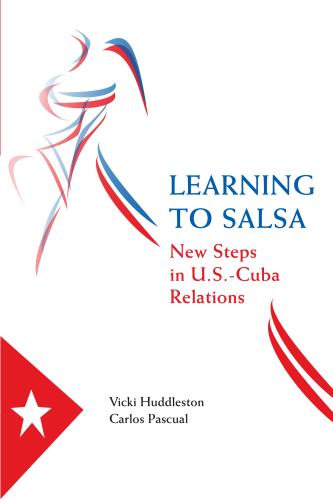
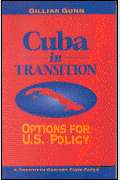

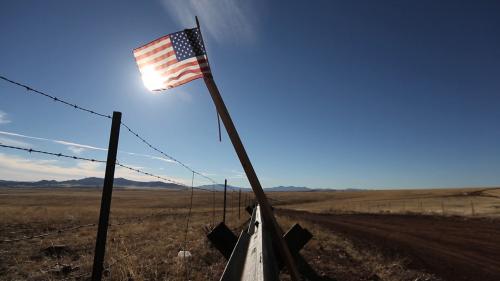


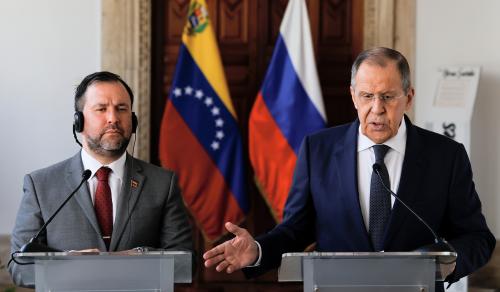
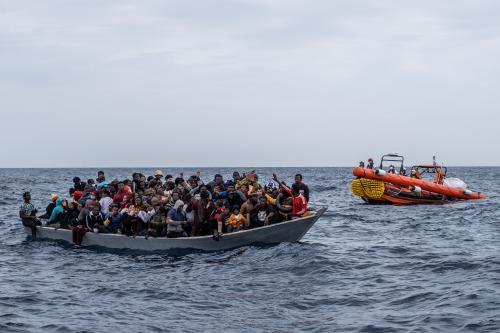
Commentary
What Trump’s “America First” means for Latin America
October 17, 2017